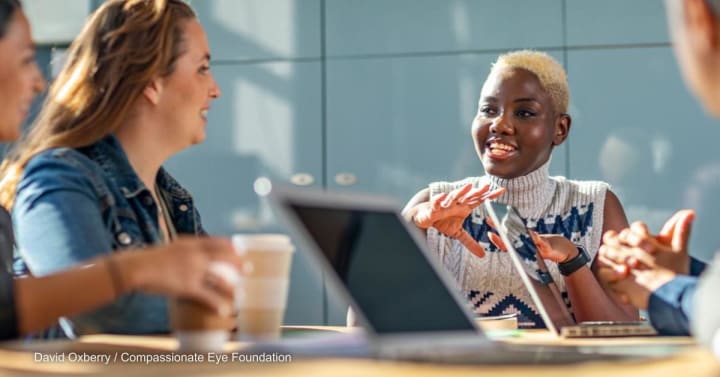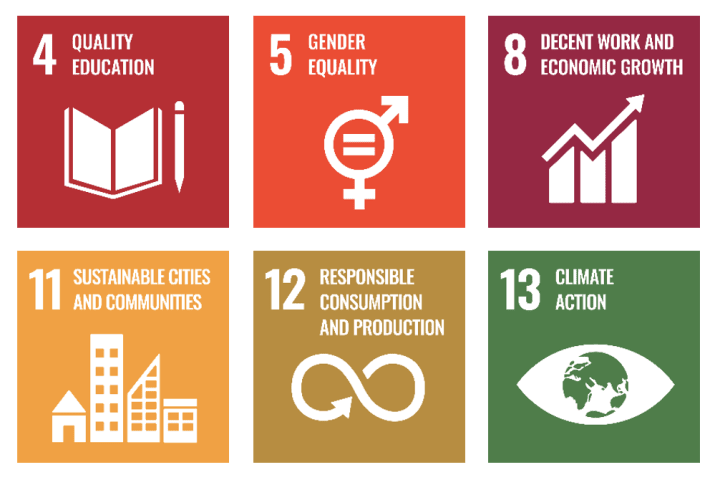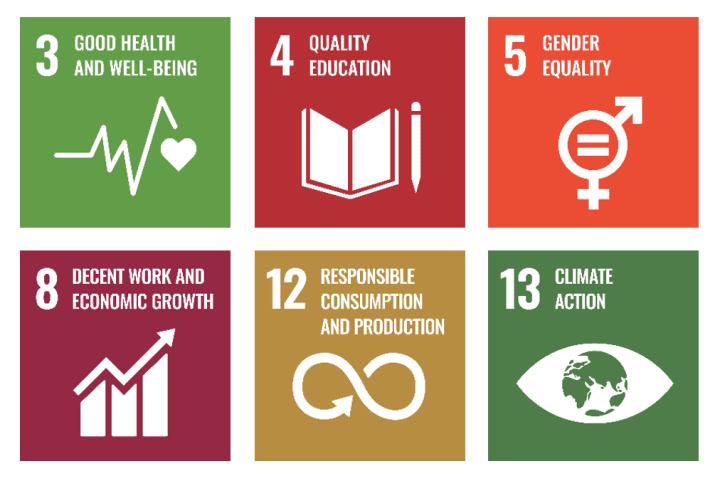
2023 marks the halfway point to accomplish the 2030 Agenda for Sustainable Development, and it’s clear that we’re not moving fast enough.
According to a special edition of the Sustainable Development Goals report 2023, “ The impacts of the climate crisis, the war in Ukraine, a weak global economy and the lingering effects of the COVID-19 pandemic have revealed weaknesses and hindered progress towards the Goals.” United Nations Secretary-General António Guterres summarized the urgency of the situation, stating: “Unless we act now, the 2030 Agenda will become an epitaph for a world that might have been.”
To accelerate progress on the SDGs, we must act urgently, collectively, systemically, and across sectors. Examples of collaboration at the nexus of the SDGs offer hope and a new paradigm of partnerships that amplify impact and drive positive outcomes for society.
Be the change
As corporations look to embed sustainability into their strategies, operations, and culture, there is a growing opportunity for new kinds of collaboration between NGOs and corporate partners to achieve greater impact than organizations could do working alone. Companies and NGOs looking to create these opportunities should consider these actions to get started:
• To inspire collective impact, those who specialize in a single area should look to work with others who focus on another SDG. For example, if you primarily focus on the environment, engage with others who specialize in human rights and development. You can learn from each other by broadening your focus to consider adjacent and linked SDG impact areas as you shape a journey that creates positive change for both people and the planet.
• Encourage corporate partners to think beyond exclusivity and bilateral partnerships. Consider convening peers or companies from adjacent industries and leverage opportunities to create partnerships and consortiums that address issues at the nexus of multiple SDGs.
• Engage with C-suite executives who have a vested interest in seeing results in these areas. This may include chief sustainability officers, chief financial officers, or chief procurement officers, as well as foundation or donor contacts.
• Find win-win partnership opportunities that deliver impact while being embedded in core business offerings and contribute to key sustainability goals. These partnerships may go beyond traditional fundraising structures and may offer opportunities for NGOs to receive payment for services or contributions to measurable ESG performance on an ongoing basis. This could provide greater certainty and improve NGOs’ long-term financial health.
• Also consider new constructs such as venture funds and incubators — for example, UNICEF and Mercy Corps have employed innovative financing models with the private sector and other partners.
Next-generation partnerships in practice
Accenture Development Partnerships, or ADP, has been working at the intersection of civil society, government, and the private sector for 20 years, and we have championed and supported dozens of cross-sector partnerships. We know that partnerships are often difficult — anything that breaks from the old way of doing things is. But our greatest successes have come from these opportunities, and the need for new partnerships at the nexus of the SDGs is growing. Recently, we shared our insights on the need for connectivity at the nexus of gender, health, and climate, and we encourage you to consider the examples below, which similarly show the benefits of fresh thinking.
Circular Geniuses, a partnership between Save the Children Sweden, local and national Indonesian authorities and businesses, and Accenture, is designed to tackle multiple issues, including electronic waste, climate change, child labor, and education. The pilot program in Makassar, Indonesia, targets the recycling of e-waste. The challenge is truly systemic and requires changing both social norms and behaviors. The program’s partners approach the problem in a holistic way that none could accomplish by themselves, addressing a complex web of issues, including funding, infrastructure, regulation, education and training, communication and advocacy, and family support. By providing informal e-waste workers with access to long-term sustainable jobs in the recycling industry and training them in green skills, the program improves e-waste recycling, family incomes, health, and safety, and allows more children to stay in school instead of dropping out to help support their families.

Another project at the nexus of the SDGs demonstrates how partners can innovate and use technology to bridge the digital divide that the market failed to address organically. Semiconductor company Arm, the World Health Organization, the International Telecommunication Union, and Accenture leveraged an inclusive design process to create a prototype of an ultradurable e-tablet that improves the connectivity and efficiency of health care workers in low- and middle-income countries.
Current off-the-shelf devices are not built to withstand the rugged conditions these health care workers face, so the devices fail frequently and force the workers to rely on pen and paper — costing them both precious time with patients and diminishing the superior tracking and pattern-recognition abilities that electronic record keeping provides. With information supplied by health care workers in key countries, the partners prototyped a rugged, solar-chargeable device and conducted testing with NGOs in Bangladesh and Tanzania. The device allows health care workers to spend less time on paperwork and engage more with patients. Once the tablet is widely available, it could improve health outcomes for millions, as well as reduce e-waste.

While we recognize the challenges that all parties face in driving collective impact, we also see firsthand that shifting mindsets and new ways of working can help overcome these challenges. It’s incumbent on all of us to explore the opportunities that can be found at the nexus of the SDGs. Leaders across civil society, government, and the private sector must work together to rewrite the future of partnerships.
For more information about ADP’s work, please visit our website.





